
Does my pet need supplements?

Dr Scott Miller
9 May 2022
If you’ve been eyeing up the supplements aisle at the pet store, this one’s for you. We totally get it – you want to make sure your pet is as healthy as can be. And with pictures of happy, bright-eyed pets on the packaging, how could you resist?
But as Dr Scott Miller explains, you might be doing more harm than good by giving them to your canine or feline. So let’s jump into the world of pet supplements.
- What are pet supplements?
> Why do pet owners choose to give their cat or dog supplements? - How do I know if my adult cat or dog needs supplements?
> Examples of when a pet might need supplements
> Are pet supplements safe? - Do older cats and dogs need supplements?
- Do puppies and kittens need supplements?

What are pet supplements?
A pet supplement is a food product or snack designed to give your pet extra nutrients or functional ingredients.
Nutrients often come in powder form and are recommended by vets to bring nutritional balance to an incomplete diet. Functional supplements also help support certain medical conditions or physical forms.
Functional ingredients are the parts of food that give specific health benefits to your pet when eaten regularly. For example, omega-3 fatty acids (found in foods like oily fish) can help ease inflammation.
Pet supplements can have different nutrients and functional ingredients such as:
- Vitamins and minerals like calcium, zinc, vitamin C, vitamin D, and vitamin E
- Fatty acids
- Amino acids
- Joint supplements
- Herbals like milk thistle and curcumin
- Prebiotics
- Probiotics
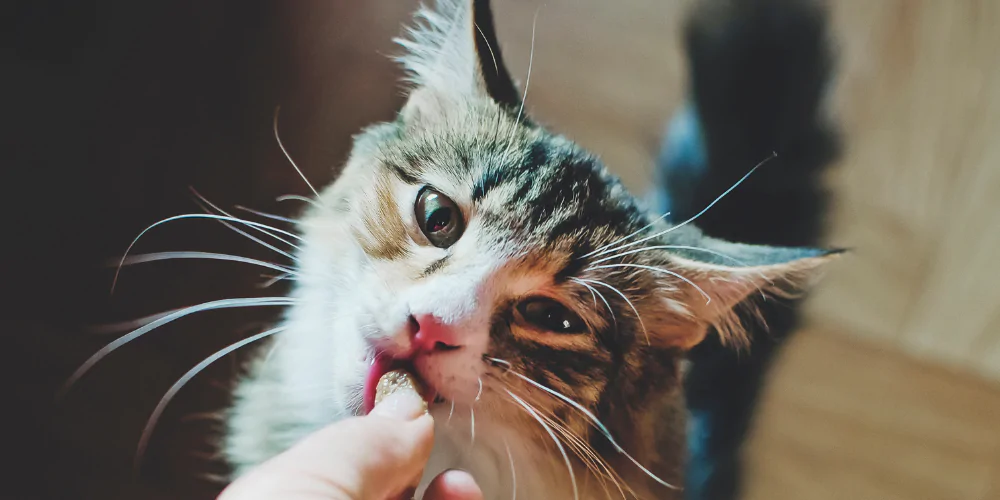
> Why do pet owners choose to give their cat or dog supplements?
There’s different reasons why some pet owners might decide to give their pet supplements:
- They’ve been specifically prescribed them by a vet.
- They think commercial pet food doesn’t give them all the nutrition they need.
- They want to find a treatment option that’s more ‘natural’.
- They’re trying to reduce negative side effects from prescribed medicine.
- They’re trying to help them live longer, especially if they have a disease.
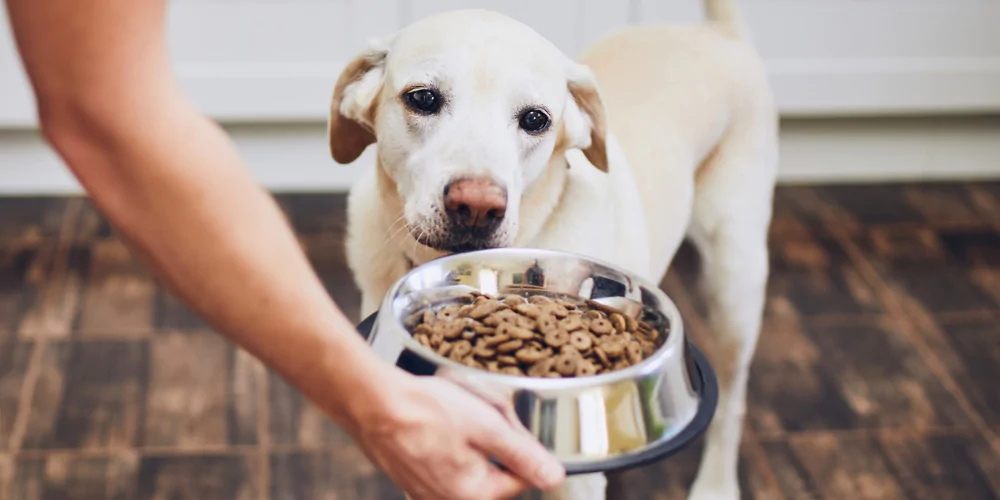
How do I know if my adult cat or dog needs supplements?
Most adult cats and dogs don’t need supplements to have a healthy diet – that’s where complete food comes in.
Here’s a quick breakdown of the two main groups of pet food:
- Complete food – these give your pet a balanced mix of fat, carbohydrates, protein, minerals, and vitamins. They have all the right nutrients for your pet’s lifestyle, age, and size.
- Complementary food – this type of food isn’t nutritionally complete, so needs other foods added in to bring that balance. We’re talking foods like treats, biscuits, and other pet-safe snacks.
Giving your pet a complete diet (instead of lots of complementary foods) is a straightforward way to make sure they’re getting the right nutrition for their needs.
Complementary foods shouldn’t make up more than 10% of your pet’s daily calories. Any more and you’re risking your pet not getting enough of those important essential nutrients.
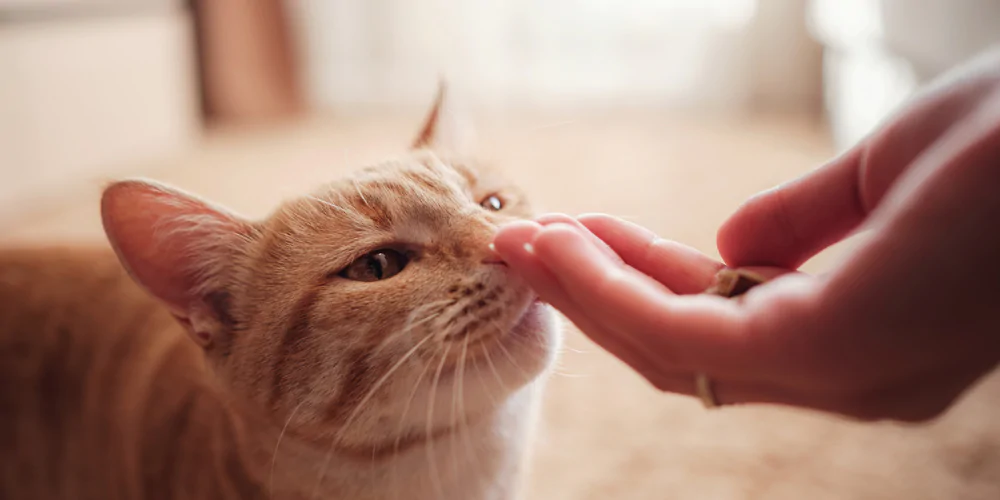
> Examples of when a pet might need supplements
But there are times when your pet might need supplements to help manage a specific health issue. Your vet should always be the one to recommend which supplement they need and how much to give them.
For example:
- Fatty acids for coat and skin problems
- Glucosamine and chondroitin for osteoarthritis
- Probiotics for stomach troubles
- Calming supplements for stress or anxiety
Pets on a homemade or raw food diet may also need supplements as it’s difficult to get the right amount of vitamins and minerals. If a food doesn’t have the words ‘complete balanced diet’ on the packaging, then supplements are needed to make it so.
So, if you’re not sure if your pet needs some supplements in their diet, always have a chat with your vet first.
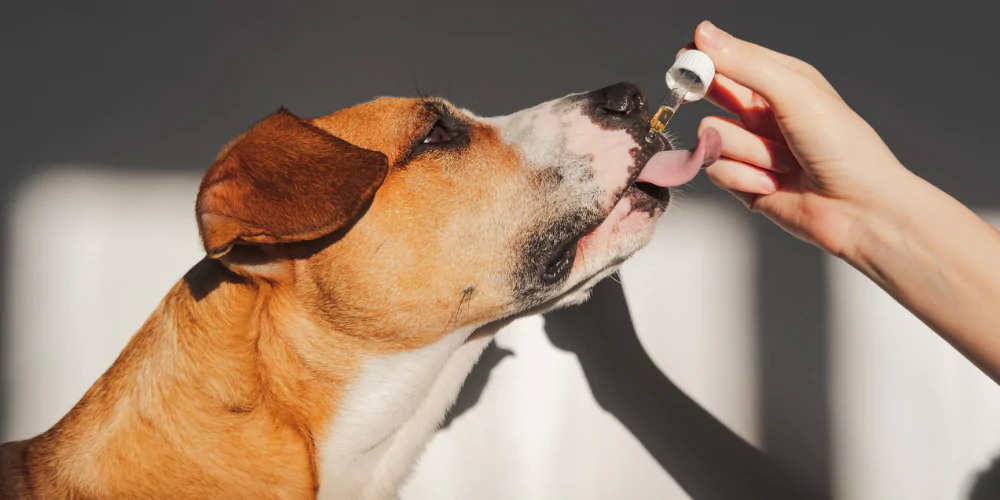
> Are pet supplements safe?
Getting the right nutritional balance for your pet’s specific needs is essential for their health. That’s why it’s not always safe to use pet supplements when they’re not recommended by a vet.
High doses of certain vitamins (such as A and D) and minerals (like iron and calcium) could be toxic to your canine or feline. It may also affect their normal bodily functions and development.
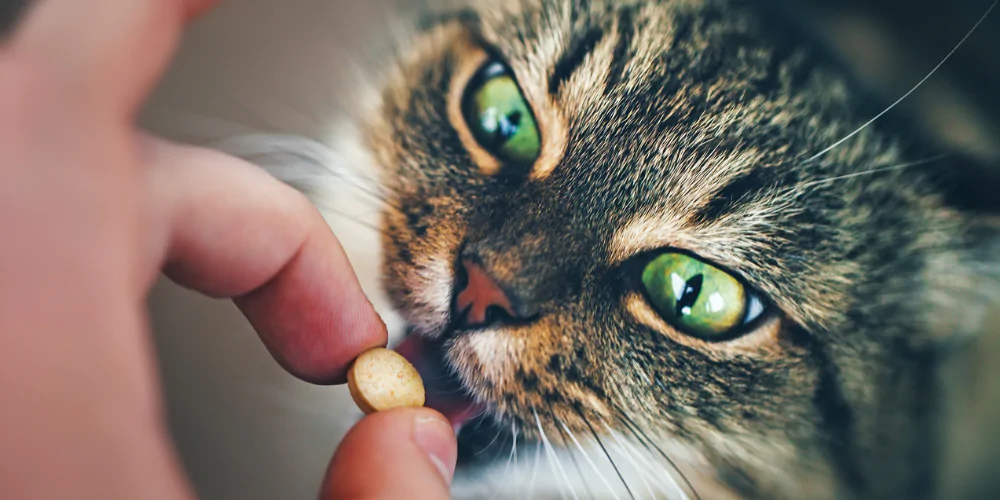
Do older cats and dogs need supplements?
As senior cats and dogs approach their twilight years, their nutritional needs change. We’re looking at pets aged 7 onwards – the exact age that a cat or dog is classed as ‘senior’ depends on their breed and size.
Older dogs and cats aged between 7 and 11 have a higher risk of obesity. Geriatric cats and dogs (over 11) have a higher chance of losing body mass. This means their diet needs:
- More high-quality proteins like chicken, tuna, and salmon to maintain lean body mass
- Extra antioxidants to boost their immune system
- Less calorie-dense foods like fats
- Lots of fresh, clean water to keep them hydrated
But all of this doesn’t automatically mean they need to start taking supplements. There’s lots of complete foods out there created especially for senior cats and dogs.
If they have a specific health issue, a vet will look at the most suitable option to help. This could be medication, a specially tailored diet food, or supplements.
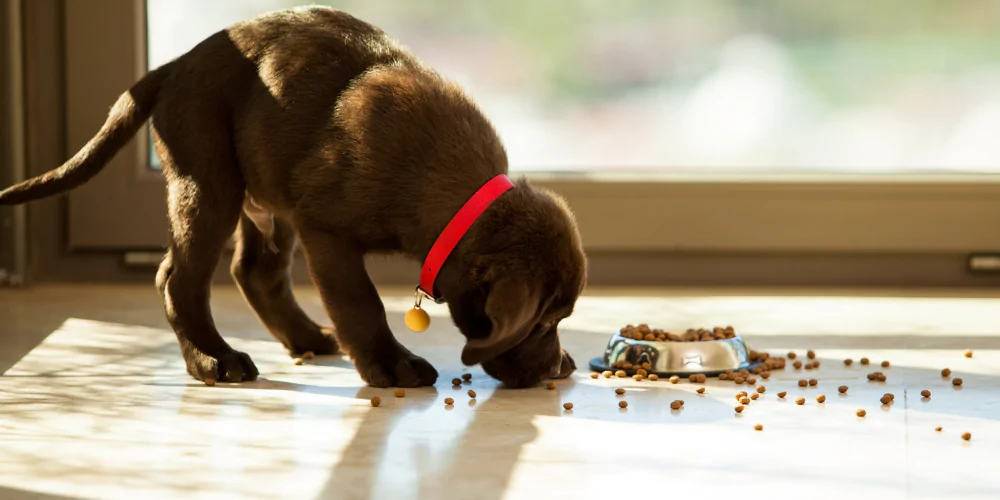
Do puppies and kittens need supplements?
Puppies and kittens need plenty of nutrients to help them grow. And like their adult and senior counterparts, they can get the right amount of nutrients from complete food labelled specifically for young pets.
These young pet complete foods will have the correct levels of:
- Healthy fats to give them plenty of energy
- Protein to help growth and maintain a healthy immune system
- Calcium for their bones and teeth
- Vitamins and minerals to also boost their immune system
Remembering to take your puppy or kitten for their 6-month checkups is super important. Your vet uses these appointments to track their growth and look for any problems. As always, your vet will advise on the best way to manage a lack of specific nutrients.
And don’t forget, training snacks count as a supplementary treat! You’ll want to factor those into your puppy or kitten’s daily food allowance so as not to overfeed them.
If things aren’t quite right with the health of your top dog or favourite feline, it’s reassuring to know that pet insurance is there for you. Choose flexible pet insurance from Petsure to protect your pet from the unexpected.


